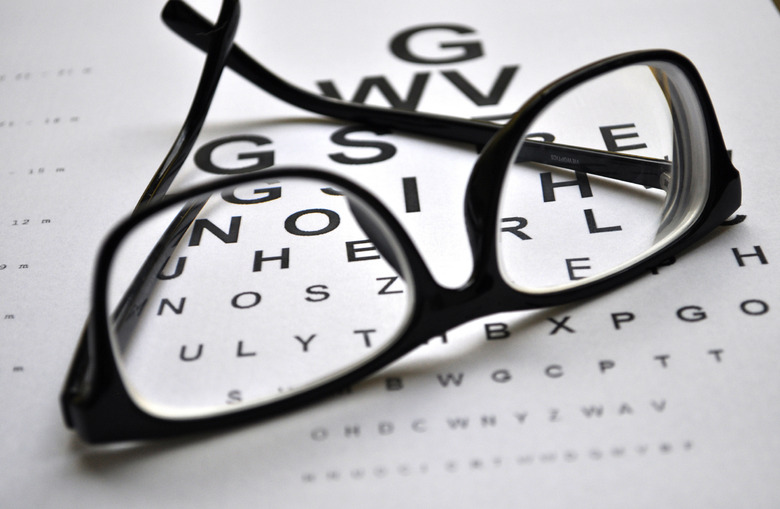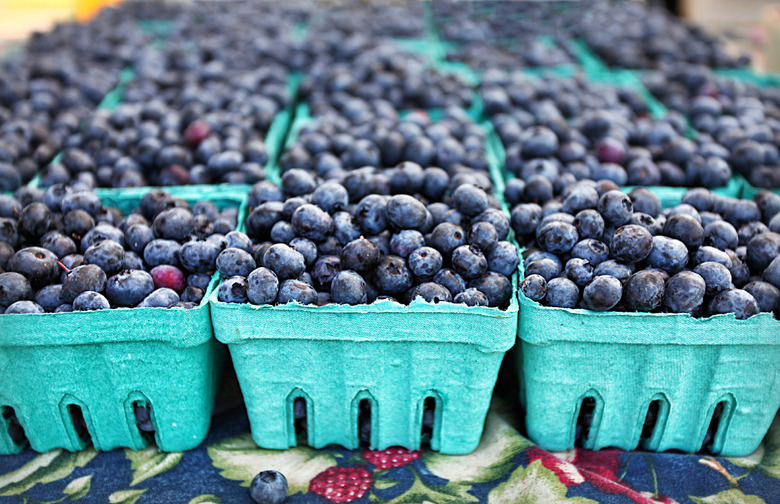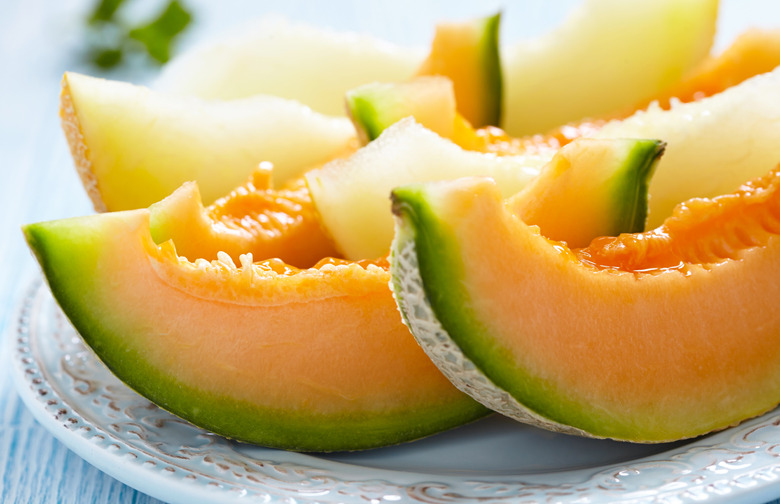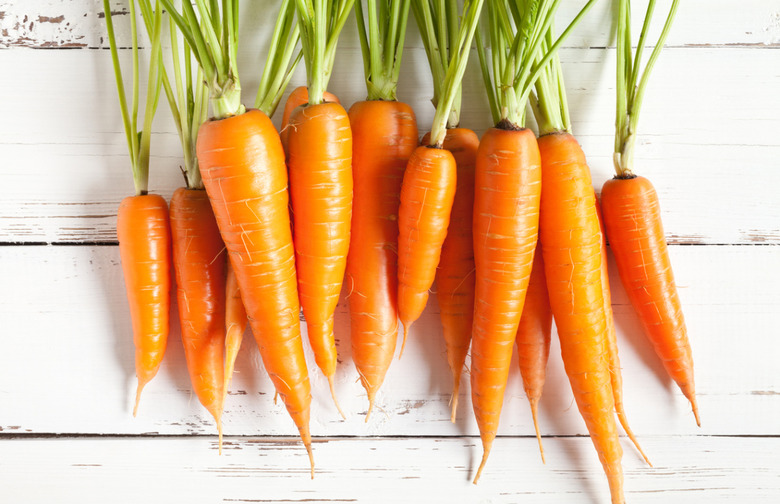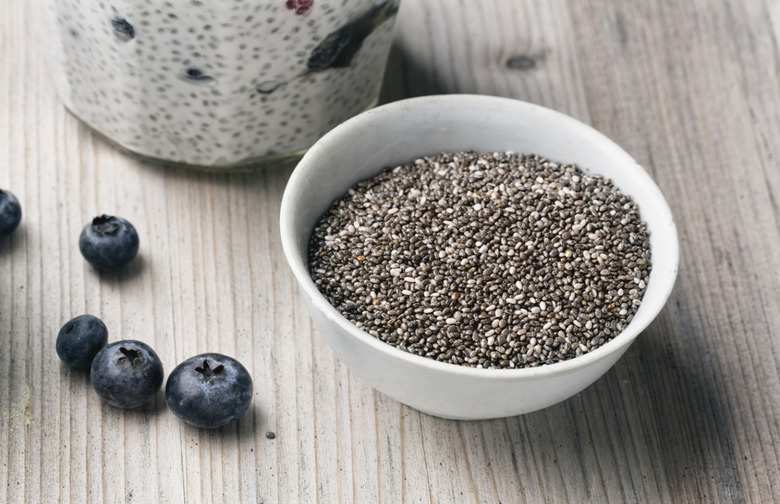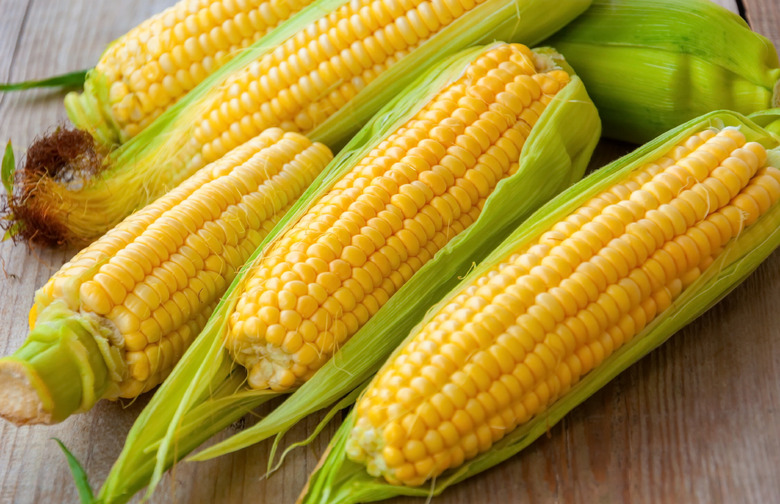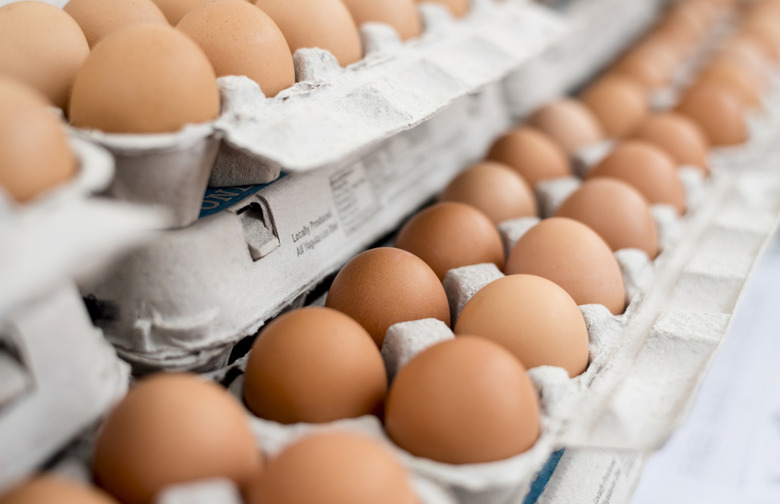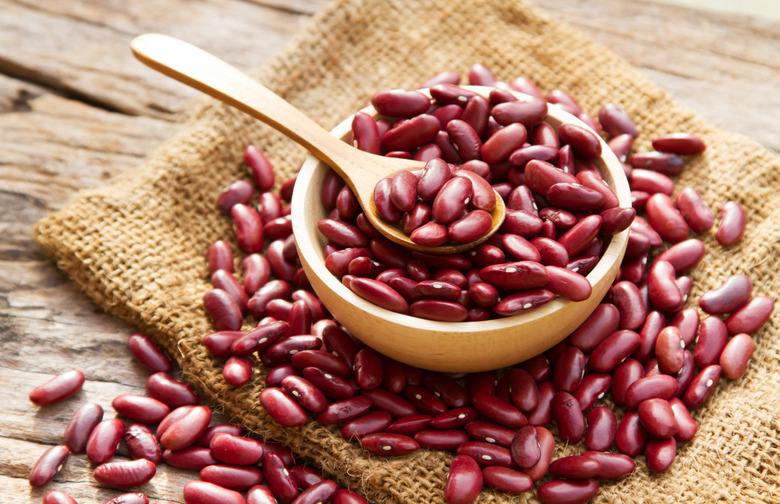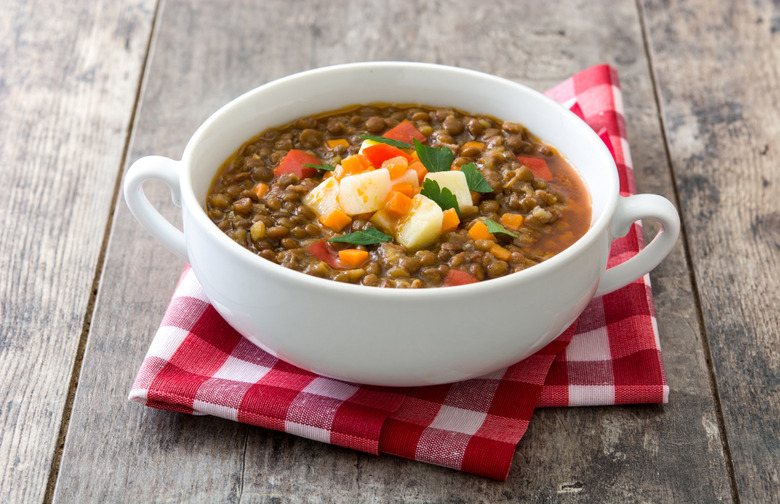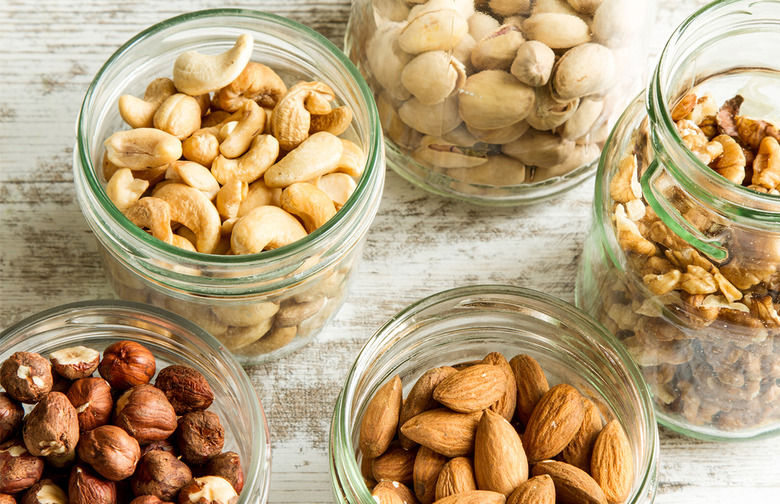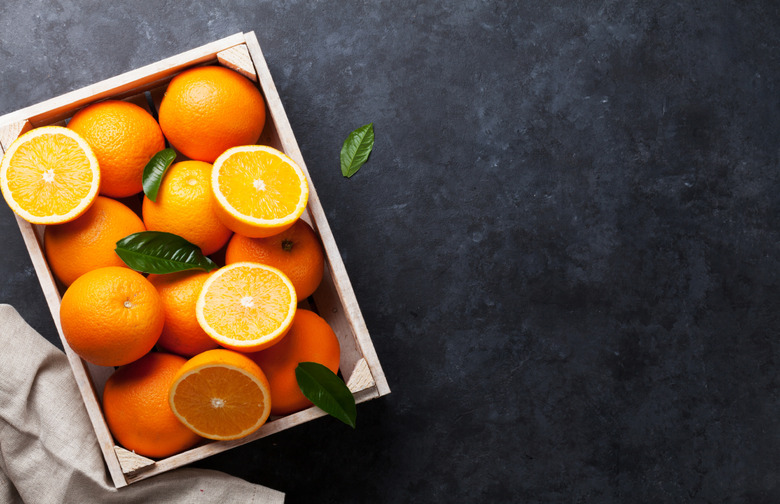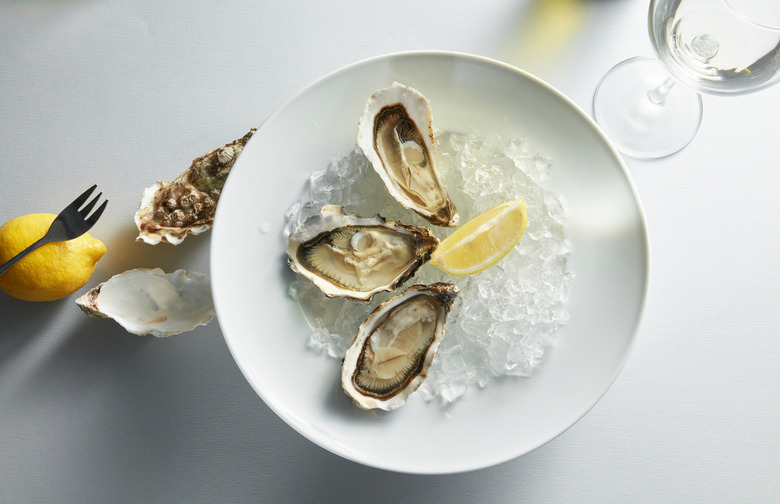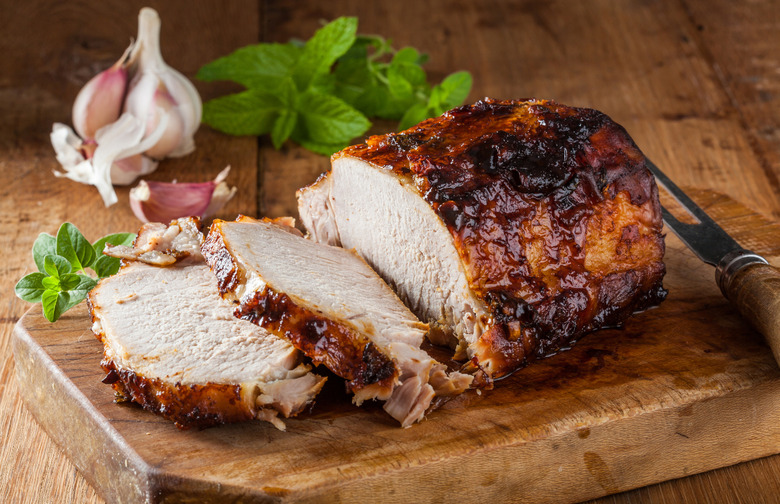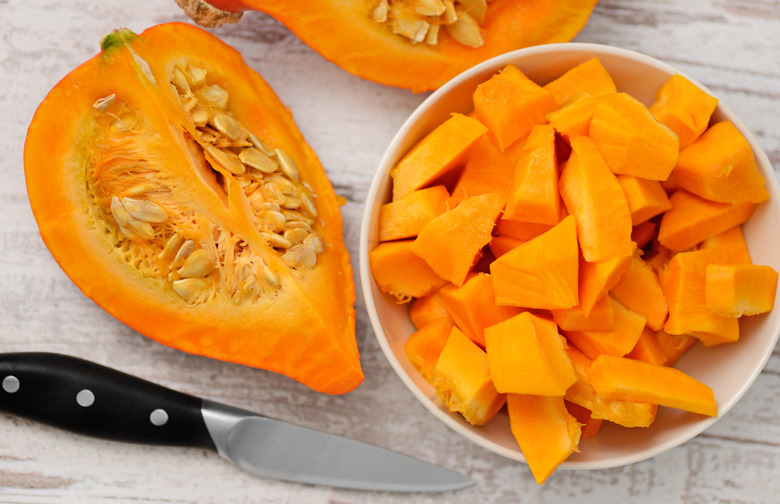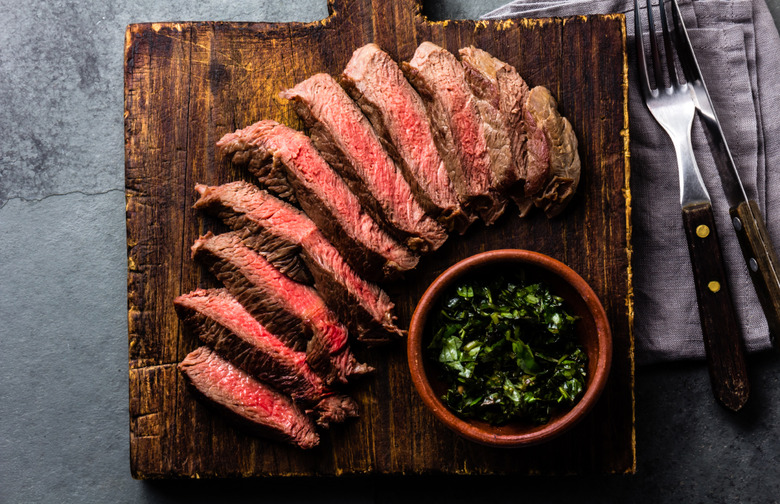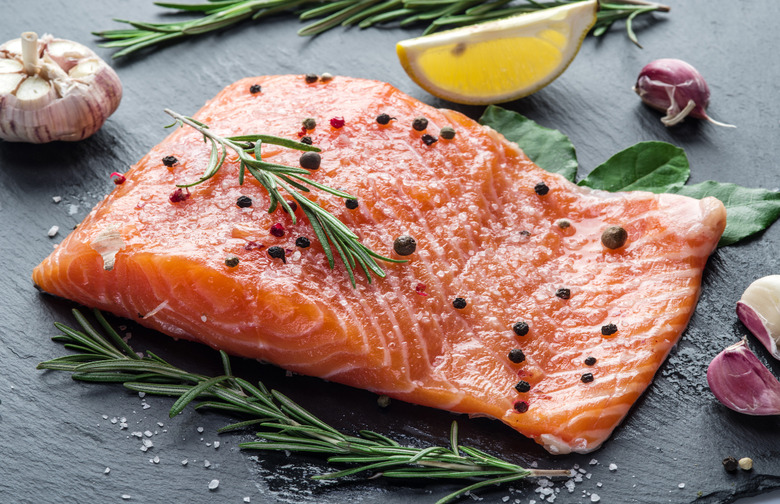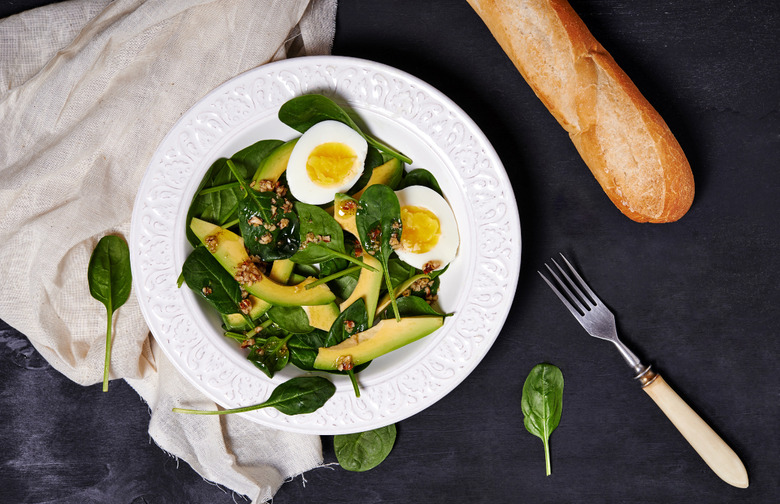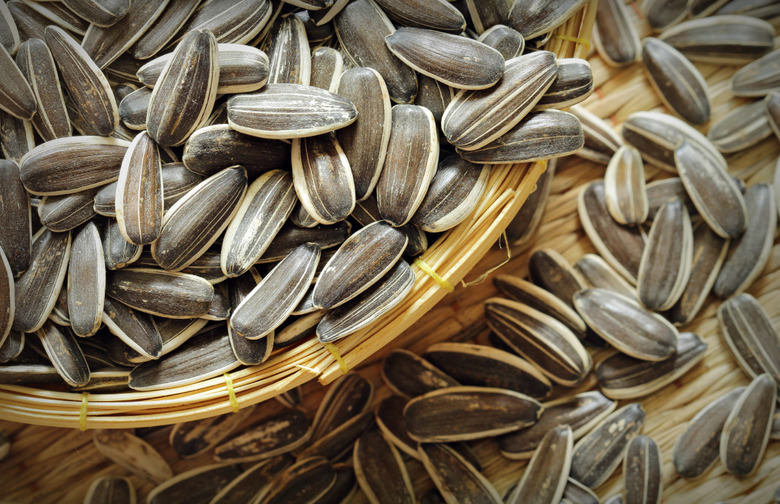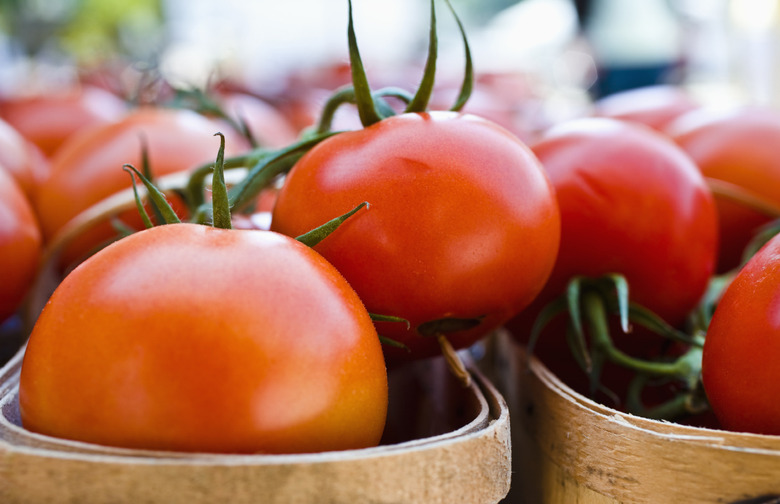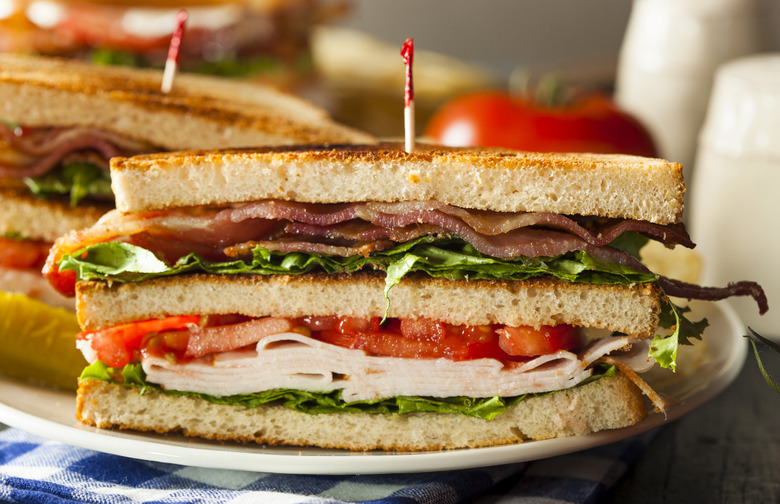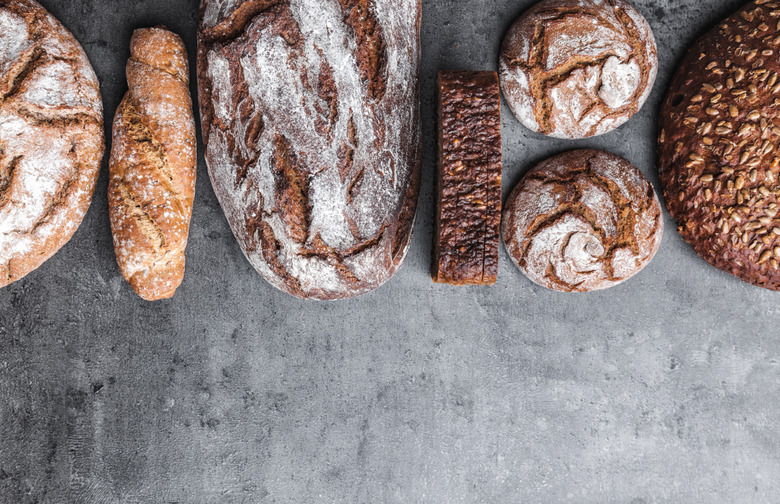Carrots, Blueberries, And 18 Other Foods To Help Improve Your Eyesight Slideshow
We're not saying you'll be throwing away your bifocals after eating a plate of carrots (though you might save yourself a trip to the tanning salon). But there's no doubt that the nutrients in carrots can help your eyesight persevere for longer. Eating a variety of colorful, wholesome food ingredients can help your eyes remain sharp. Certain foods are more effective for eye health than others.
It can be counterintuitive to think about nutrition this way. We're conditioned to think about using food and nutrients as a way to stay fat or thin, strong or weak, diseased or healthy. But food does so much more for the body than maintain weight and ward off diabetes. In fact, food can help us to preserve and better our bodies all the way through to old age.
That's why it's so important to eat vegetables. When you become nutrient-deficient, it affects more than just your percent body fat. Nutrients serve a whole slew of different purposes in keeping us healthy and functioning.
It's easy to look at a carrot and just see a carrot. It's easy to look at a plate of pasta with spinach and just see a delicious Italian dinner. It's just as easy to look at a plate of pasta and think "that's going to ruin my diet." But that couldn't be further from the truth.
But real, smart nutrition happens when you can look at that same plate and see heart-healthy carbs, calcium-loaded mozzarella, and spinach rich with iron and other minerals. Each of those pieces of nutrition serves a purpose. That's why it's so important to eat a variety of foods throughout the day — you want all your different bodily functions taken care of with food.
The same goes for your eyesight. As we age, our eyesight deteriorates naturally. However, with the right nutrients and some smartly chosen foods, you can help stave off that dreaded trip to the optometrist.
Think About Your Eyes is a national public awareness campaign, presented by the Vision Council and the American Optometric Association. With their help, we uncovered 20 foods that actually could have a beneficial impact on your vision — and your overall eye health.
Blueberries
Blueberries have been shown to help reduce your risk of cataracts and glaucoma, in addition to piling a heap of antioxidants onto your diet. The vitamin C in blueberries is also beneficial to our eyes, enhancing the health of blood vessels that keep our eyes working well.
High in fiber, nutrition, and taste, we recommend snacking on them plain, sprinkling them over yogurt, or using them as a topping for vanilla ice cream.
Cantaloupe
This fruit is a juicy, fresh reservoir of vitamins A and C, both of which have vision-boosting power. Cantaloupe, like carrots, contains beta-carotene and has the potential to decrease the risk of a number of diseases and conditions associated with vision.
Carrots
You've likely been hearing this recommendation since grade school. Beta-carotene, a type of vitamin A that gives carrots and other vegetables their bright orange hue, does help the retina and other parts of the eye to function their best.
But that's not all carrots can do for your eyes. "There have been several studies recently showing that this vitamin — along with vitamins C and E — helps to reduce the impact of both cataracts and age-related macular degeneration," says Leland Carr, OD, a doctor and professor of optometry at Northeastern State University in Oklahoma.
Chia Seeds
Chia seeds actually contain more omega-3 fatty acids per serving than salmon. They're insanely easy to use, too — you can literally sprinkle them over any food for an easy and flavorless nutritional boost. If you're not someone who enjoys the added crunch on your snacks and meals, simply mix some chia seeds with water or milk to create chia pudding. Sweeten it with honey, add fruit, and snack away!
Corn
Corn may not be orange, but it still contains beta-carotene, the same vitamin responsible for giving carrots their hue and reputation for aiding your eyes. We don't need to tell you how to incorporate corn into your diet — between all the options ranging from on the cob to Mexican food, we're pretty sure you're ready and willing to eat more of the delicious and starchy vegetable.
Eggs
Ah, another egg-cellent reason to love eggs! They can give you so much more than protein — eggs also contain high levels of lutein and vitamin A, both of which decrease the likelihood of your vision wearing down over time. Lutein has also been known to prevent cataracts from occurring. Just make sure you're cooking them right — there are more ways than you think that you could be getting it wrong.
Kidney Beans
These legumes are filled with fiber, antioxidants, and iron. Iron deficiency has been linked to a number of health problems, including blurred vision. Additionally, the antioxidants found in kidney beans, called bioflavonoids, can help to protect your retina from exterior harm and degeneration.
How do you eat kidney beans? Simple: Throw them in a salad, add them to your tacos, or use them in a hearty soup.
Lentils
Like kidney beans, lentils are legumes that contain high levels of antioxidants. In addition, lentils carry levels of the mineral zinc, which is great for your eyes. The lentil recipe opportunities are endless, and range from curry and grain bowls to "meatloaf" and salad.
Nuts
We asked experts from the Think About Your Eyes campaign, and they confirmed it: We have yet another reason to love nuts. "The vitamin E found in almonds, peanuts, cashews, and other nuts is found to protect the eye's cells from free radicals that can break down the eye's healthy tissue," they explained.
Oranges
Vitamin C, though not widely known for its effects on vision, enhances the health of your blood vessels to aid in the functioning and health of the eye. Oranges are jam-packed with this vitamin — and they just so happen to make a refreshing summer snack. Or, if you're in the mood for something heartier, whip up a vitamin C-packed barbecue.
Oysters
These delicacies are among the foods that contain the highest amount of zinc. Zinc is crucial for eye health because it helps the eye produce melanin, the pigment that shields your retina from outside harm. A deficiency in zinc can also make it difficult to see in dimmer lighting, and make it nearly impossible to see at night.
Pork
Like oysters, pork also contains lots of zinc. We don't recommend you load up on the stuff — but a nice slab or two of pork loin couldn't hurt.
Even better? Eat your pork in the form of bacon. It's also got the rare nutrient selenium, which has promising health implications for preventing arthritis.
Pumpkin
Take pretty much any orange food and there's a good chance it's good for your eyes. Pumpkins are no exception. They contain a super high concentration of beta-carotene which, as we've previously explained, is extremely beneficial to your vision.
Here's some bad news: There's no actual pumpkin in a pumpkin spice latte. Instead of ordering one of those sugar and calorie bombs, use pure canned pumpkin in a healthy recipe or two to get the most benefit — and a little fiber, too!
Red Meat
Red meat should be eaten in moderation, especially if you're nervous about your cholesterol or heartburn. However, it is a perfectly healthy food so long as you're mindful of your portions. Red meat contains high levels of zinc, a mineral which delivers vitamin A to the retina from the liver, producing melanin that protects the eye's pigment.
"The lack of zinc can lead to problems in vision including cataracts and night vision issues," Think About Your Eyes told The Daily Meal. So more red meat could mean fewer cataracts.
Salmon
Fatty acids and omega-3's are fabulous for your eyes. They prevent dry-eye syndrome and they can help protect tiny blood vessels in the eyes. If salmon is too pricey for you to buy regularly, know that other fatty fish such as tuna, mackerel, and anchovies also contain these beneficial compounds.
Spinach
Spinach, one of our favorite leafy greens, packs a whole bunch of eye-healthy nutrients: Vitamin C, beta-carotene and two other nutrients that protect the eyes from harmful blue light. According to the experts at the Think About Your Eyes campaign, "it can also lessen the risk of macular degeneration and cataracts."
Good thing spinach is so easy to cook with. You can throw it into almost any savory dish or serve it as your base for a nutrient-packed salad.
Sunflower Seeds
These nutrient powerhouses contain high doses of vitamin E and zinc, both of which have been known to enhance the health of your eyes. Keep them around for longer by mixing some seeds into your salads, creating DIY trail mixes with sunflower seeds and dried berries, or simply munching on them on their own.
Tomatoes
The advice to "eat the rainbow" is pretty on point — the vivid colors of vegetables, including tomatoes' bright red, are usually caused by a particularly powerful vitamin or mineral. Tomatoes are dyed red by their lycopene, a mineral that helps protect the retina from damage induced by harsh light.
Turkey
Not only is turkey a tryptophan-filled, happy-hormone-promoting food, but it's also great for your vision. The lean meat contains tons of protein for cell regeneration and the B vitamin niacin, which has been known to help prevent cataracts. Add zinc to its list of beneficial nutrients, too — seriously, why do we only eat this meat with Thanksgiving or a bland deli lunch? Try this recipe for turkey meatballs for a much tastier way to increase your intake.
Whole Grains
Macular degeneration is the leading cause of vision loss over time, and it can't be cured. A diet with a low glycemic index, or GI, has been shown to lessen the risk of macular degeneration as you age. Whole grains such as brown rice, quinoa, and whole wheat pasta are crucial components of a low-GI diet.
Add more of these types of foods to your dinner rotation to keep your eyes — and your blood sugar levels — healthy. If you're not sure where to start, try out one of these recipes that turn quinoa into a star.
